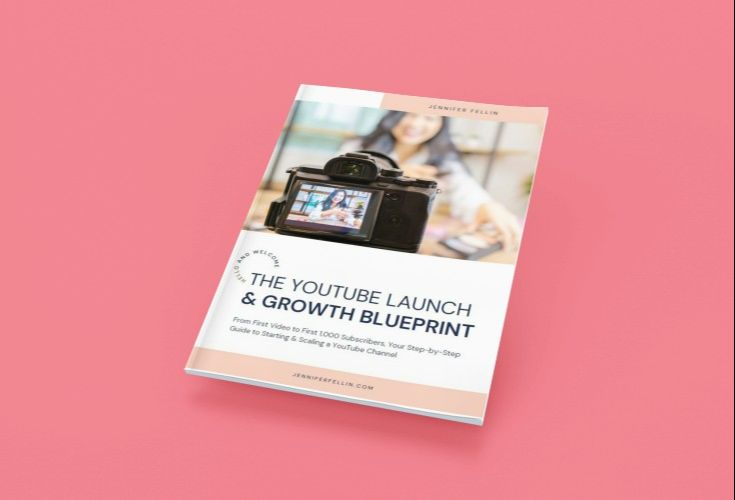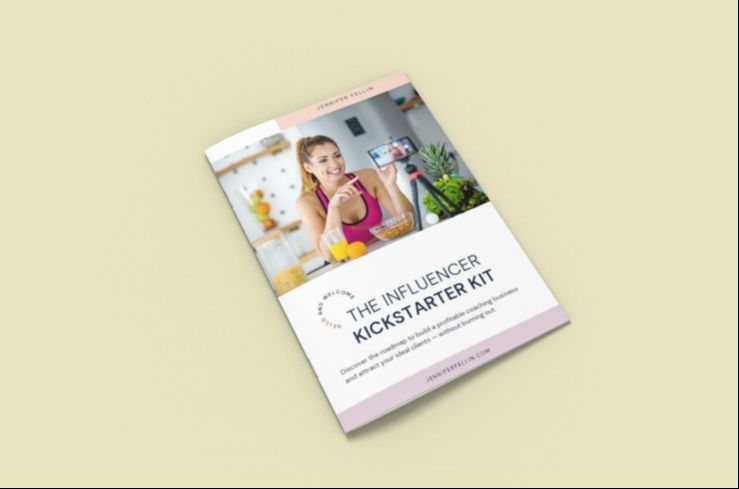How to Be More Confident in Interviews
Mar 09, 2025
Interviews can be one of the most nerve-wracking experiences in the job search process. The pressure of showcasing your skills and experience while demonstrating your value to a potential employer can make even the most seasoned professionals feel anxious. However, confidence is one of the most critical factors that can influence the outcome of your interview. When you approach the interview process with self-assurance, you're more likely to make a strong impression, convey your skills effectively, and engage with the interviewer on a deeper level. So, how can you boost your confidence for interviews? Here are several strategies to help you feel more prepared and confident, from preparation to body language, all while maintaining authenticity.
1. Preparation is Key
The first step in feeling confident during an interview is ensuring you are well-prepared. Preparation allows you to control the variables of the interview as much as possible, which reduces anxiety.
Research the Company and Role: Before you even step foot into the interview room, you need to thoroughly research the company and the position you're applying for. Familiarize yourself with the company’s mission, values, culture, and recent achievements. Understand the job description thoroughly, and know what the role requires in terms of skills and responsibilities. The more you know about the company, the easier it will be to connect your background to their needs. This knowledge will make you feel more in control, as you will be able to speak to how your skills align with the role.
Practice Common Interview Questions: While every interview is different, there are some questions that are nearly always asked. Questions like “Tell me about yourself,” “What are your strengths and weaknesses?” and “Where do you see yourself in five years?” are all staples of an interview. By practicing your answers to these questions in advance, you’ll be able to respond confidently and thoughtfully. It’s important to strike a balance between rehearsed answers and authenticity. Memorized answers can sound robotic, but having a strong framework to guide your responses will make you feel prepared.
Mock Interviews: One of the best ways to simulate an interview scenario is to conduct mock interviews with a friend, family member, or even a mentor. Mock interviews provide an opportunity to practice answering questions in real-time, get feedback on your responses, and receive advice on how to improve your performance. You can also use these mock interviews to practice your body language, such as maintaining eye contact, sitting up straight, and using confident hand gestures.
2. Master Your Mindset
Confidence doesn’t come from knowing you’re perfect for the job (even though you might be!). Instead, it comes from having the right mindset. A confident mindset helps you stay calm under pressure and focused on what you can control.
Shift Your Focus from Anxiety to Opportunity: Instead of focusing on your nerves or fearing rejection, reframe your thinking to view the interview as an opportunity. It’s not just about them evaluating you; it’s also about you evaluating whether this role and company are the right fit for you. By taking this mindset, you’ll feel less pressure to “perform” and more empowered to have a productive conversation.
Visualize Success: Visualization is a powerful technique that top performers across industries use. Before your interview, take a few moments to close your eyes and visualize yourself entering the interview room with confidence. Imagine answering questions smoothly, engaging with the interviewer, and leaving the interview feeling accomplished. Visualization helps program your brain to approach the situation with a calm and positive attitude, which translates into greater confidence.
Avoid Negative Self-Talk: One of the biggest confidence killers is negative self-talk. You might think things like, “I’m not qualified enough,” or “I’m going to mess up.” However, this kind of thinking can sabotage your confidence. Instead, challenge these thoughts with positive affirmations. Remind yourself of your accomplishments, experience, and the value you bring to the table. By focusing on your strengths and staying optimistic, you’ll approach the interview with a more confident outlook.
3. Body Language Speaks Volumes
Your body language can significantly influence how you feel and how others perceive you in an interview. Non-verbal cues are often more impactful than the words you say, so it's crucial to make sure your body language reflects your confidence.
Posture: Sit up straight in your chair, keeping your shoulders back and your chest open. Good posture makes you look taller, more alert, and more engaged. It also makes you feel more confident by physically opening up your body. Slouching, on the other hand, can make you appear unsure or disengaged, even if that’s not the case.
Eye Contact: Making eye contact with the interviewer conveys confidence and trustworthiness. When you look someone in the eye, you are communicating that you are present and paying attention. However, be careful not to overdo it. Staring can come off as intense or intimidating. Instead, aim to maintain natural eye contact throughout the conversation, occasionally looking away to gather your thoughts.
Smile: A smile can go a long way in conveying warmth and approachability. Smiling also releases endorphins, which can help you feel more relaxed and confident. Remember to smile naturally—forcing a smile can appear insincere.
Gestures: Use hand gestures when speaking, but keep them moderate and purposeful. Gesturing with your hands can help convey passion and enthusiasm about the topic at hand. Avoid crossing your arms, as this can appear defensive or closed off. Instead, keep your hands open and relaxed to demonstrate openness and confidence.
Breathing: Often overlooked, your breathing plays a vital role in how confident you feel. Shallow or rapid breathing can make you feel more anxious and jittery, while deep, slow breaths help you stay calm and grounded. Practice deep breathing exercises before the interview to calm your nerves and maintain focus.
4. Dress for Success
How you present yourself can greatly impact your confidence. When you feel good about the way you look, you’re more likely to project confidence to others.
Wear Professional Attire: Dress in a way that reflects the company’s culture and the role you’re applying for. A good rule of thumb is to dress one level up from what the job requires. For example, if the company has a casual dress code, opt for business casual attire. If it’s a more formal company, wear business professional attire. Avoid wearing anything too flashy or uncomfortable, as this could distract you from the interview itself.
Ensure Comfort: While it's important to look professional, comfort is key. Choose clothing that fits well and allows you to move freely. If you're constantly adjusting your clothes or shoes, it can detract from your confidence and focus. Comfortable clothing will make you feel more at ease and help you perform at your best.
Personal Grooming: Pay attention to the little details like grooming, hair, and hygiene. Clean, well-groomed hair and neat attire contribute to a polished and confident appearance. When you feel well-groomed, it’s easier to feel confident in your presentation.
5. Be Authentic and Show Your Personality
Confidence doesn’t mean being someone you're not. Authenticity plays a significant role in feeling confident and establishing rapport with the interviewer. Don’t try to fit into a mold or pretend to be someone else to impress the interviewer.
Be Yourself: While you want to highlight your strengths, it’s important to be genuine and authentic. People can often tell when someone is being disingenuous, and this can negatively affect their perception of you. Don’t be afraid to share your true self—your enthusiasm, passion, and personal experiences will set you apart from other candidates.
Connect with the Interviewer: Interviews are not just about answering questions—they’re about connecting with the person on the other side of the table. Build rapport by listening actively, asking thoughtful questions, and showing a genuine interest in the company and the role. When you feel like you're having a conversation with someone, rather than just being evaluated, it’s easier to relax and feel confident.
6. Handle Setbacks Gracefully
Sometimes, things don’t go as planned in an interview. You might not know the answer to a question, or you may stumble over your words. It’s important to remember that setbacks do not define your chances of success. How you handle these moments is what matters most.
Pause and Collect Your Thoughts: If you’re asked a tough question, it’s okay to take a moment to collect your thoughts before responding. A brief pause shows that you’re thoughtful and calm under pressure. It also gives you time to form a well-considered answer. If you don’t know the answer, be honest about it, but express a willingness to learn and grow.
Don’t Dwell on Mistakes: If you make a mistake, don’t dwell on it. Everyone makes errors, and the key is to recover quickly and move on. If you’re too focused on the mistake, it can undermine your confidence for the rest of the interview. Instead, acknowledge it, learn from it, and continue showcasing your strengths.
Ask for Clarification: If you don’t fully understand a question, ask for clarification instead of guessing. This shows that you’re thoughtful and not afraid to ensure you’re providing the most accurate answer.
Conclusion
Confidence in interviews is not about pretending to be perfect or having all the answers; it’s about being well-prepared, staying positive, and presenting yourself authentically. By taking the time to prepare thoroughly, mastering your mindset, managing your body language, dressing the part, and staying true to yourself, you can significantly boost your confidence and increase your chances of success. Interviews are an opportunity to showcase your skills, experience, and personality—so walk into the room with the confidence to let your true self shine.








